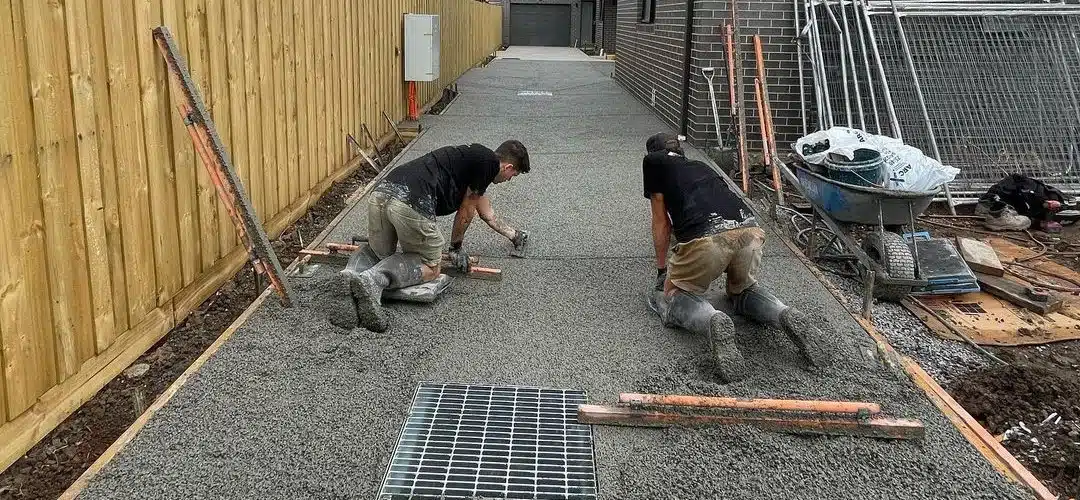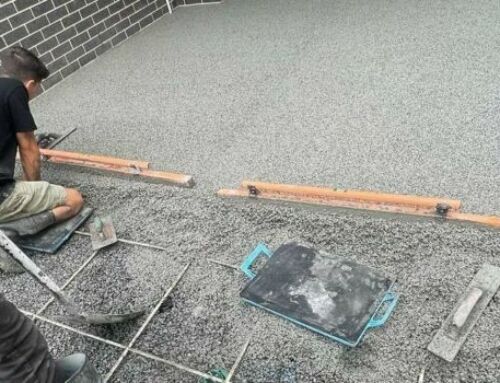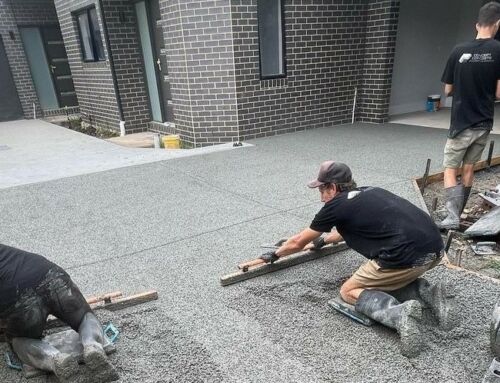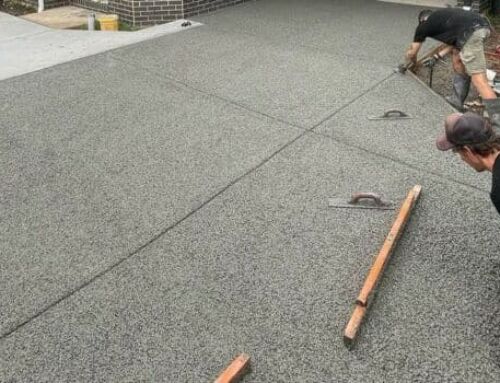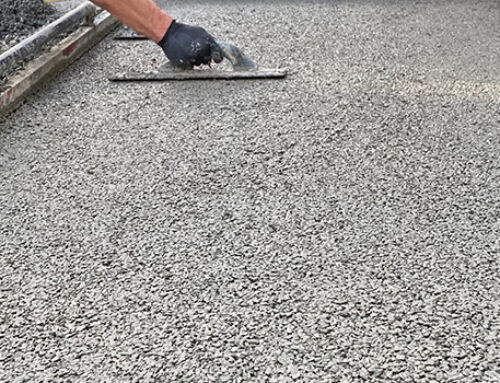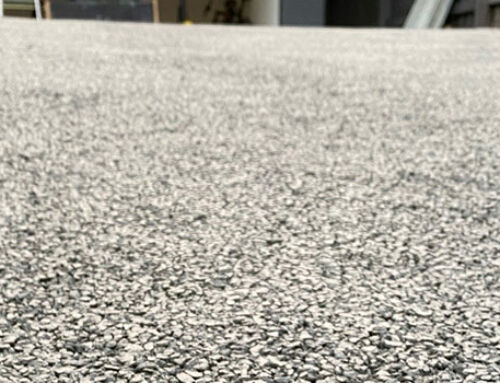Go beyond the surface level of this paving solution to discover whether it’s right for your project.
When it comes to paving a driveway, walkway, patio, or even a carpark, you might be surprised to know that there are a number of different options to choose from. Material selection actually plays a critical role in functionality and viability of a surface for the long term. And when it comes to permeable paving, many contractors agree that it strikes a balance between function and form.
When it comes to the pros and cons of permeable paving, there are quite a few things to consider. That’s why we’re taking a closer look at porous pavements and helping you better understand the benefits (or detractors) so you can make the right choice for your project.
If you want to learn more about permeable paving, check out our other resources:
1. How Much Does Permeable Paving Cost?
2. How to Choose the Best Permeable Paving Contractor
3. Permeable Pavers vs. Asphalt: Which Route to Take
4. Permeable Paving Vs. Concrete: Choosing the Right Material for Your Surface
Defining permeable paving
Permeable paving is achieved by using a porous concrete product that has a larger aggregate than most other types of concrete. The large pieces allow for there to be spaces between the granules, which leave spaces for air to gather between them once mixed with resin and hardened into a surface.
The result is a hard and durable paved surface that also allows water to pass through it, rather than the typical runoff that comes with standard concrete. A permeable surface is ideal for areas where you’re looking for a smooth, hard finish but worried about drainage. This can help with runoff as well as pooling which can affect everything from spray kicked up by drivers and a reduced risk of hydroplaning in car parks.
A durable, long lasting paving solution
A great question that often comes up when discussing permeable paving is whether it is designed to last. After all, you’re talking about a hardened surface that essentially has a bunch of holes in it to allow for drainage to occur.
The answer to this is simple: permeable paving is designed to last. Most systems can last upward of 20-40 years before showing signs of wear such as cracking or clogging. One way to extend the life of your paving is to regularly rinse away sediment so that it is less likely to build up and clog the surface.
The pros of permeable paving
When it comes to considering a porous paving solution, you just might be surprised by how far the benefits extend.
Water flow
The number one benefit to installing a permeable paving system is the management of water across and beyond the surface. Remember that because the material is porous, it’s designed to allow water to flow through it, rather than across it or pooling on the surface with nowhere to go. This also helps prevent water from overwhelming stormwater drains during rain storms. Instead, the water filters down through the concrete and into the ground, where it can then replenish the groundwater system, water grasses, and even feed nearby plants as it spreads out.
Drainage systems
With the flow of water altered by the paved surface, homeowners and business owners alike can save on the expense of installing extensive drainage systems for their properties. Hardscaping and roof plumbing systems can be less rigorous (and expensive) since you have less to worry about with water run off and pooling on your hard surfaces.
Comfortable surfaces
When you’re paving around areas like pools and patios, comfort is also key. And while porous paving solutions remain hard, and perhaps rough, underfoot, what they don’t stay is hot. Because of their tendency to take on water, permeable paving also traps less heat than other hardscape surfaces. This makes them more comfortable to walk on.
Problem prevention
Less pooling water can also mean fewer pests finding puddles to propagate in. Mosquitos and other insects look for small still areas of standing water to nest and gather about. Having a porous surface means fewer spaces for these pests to gather in. What’s more, you can also cut down on mosses, moulds, and mildews that can form on surfaces that remain wet.
Durability
Finally, you might think that concrete with holes in it would be less strong than its nonporous counterpart. However, permeable paving can achieve amazing strengths, enough to support vehicle traffic just like standard concrete. Water being drawn away from the surface can also extend the life of the concrete itself since standing water can cause cracking and sinking.
The cons when it comes to permeable paving
There are a few downsides to consider when it comes to porous surfaces, and permeable concrete is no exception. Here are the most critical when choosing the right material for your project.
Installation
This is definitely not a DIY project. While some concrete jobs, especially small ones, can be undertaken by ambitious homeowners, working with permeable concrete is not for the faint of heart. The ground needs to be readied a certain way to accept the concrete while also ensuring proper drainage after installation. And the mix needs to be prepared properly with the right binders and equipment. The solution? Finding the right best permeable paving contractor in Melbourne for the job.
Cost
On average, you can expect to pay more for permeable concrete than you would for plain concrete. This comes down, in part, to the nuances of the installation. The materials also tend to be a bit more pricey, driving up costs. Expect to pay between $180-190 per square metre.
Curious about costs? Read on: How Much Does Permeable Paving Cost? (Full Price Breakdown 2022)
Maintenance
While permeable paving is still fairly low maintenance, it requires a bit more care than its nonporous counterparts. That’s because too much sediment or dirt settling into the surface can actually clog the spaces between the aggregate, causing it to be much less porous and resulting in pooling water.
To prevent this, annual maintenance and care is the best course of action. Consult your installer regarding whether water from a hose is sufficient to cleanse your material or whether you should opt for pressure washing to ensure a careful cleaning. When using a power washer, be sure not to use too much pressure and damage the surface beyond repair.
Call on Concept Concrete for your porous paving solution
If permeable paving sounds like a fit for your needs, you’re not alone. More and more homeowners and business owners across Melbourne are turning to this material as a solution for their drainage and groundwater issues. When it comes to the pros and cons of permeable paving, the benefits far outweigh any detractors. Plus, permeable concrete might be the only option available to you depending on local council regulations where it comes to paving closer to trees and other plants that require adequate groundwater.
At Concept Concrete, we’re experts in all things concrete – permeable or not. We can help you design the solution that best fits your project needs all while staying on schedule and within budget. Our focus is always on quality, reliable, professional service for all of our customers, and we include a 78 month warranty on structure.
Every project starts with a no-obligation, completely free quote that is based on your exact property and needs. We’ll talk through the available options as well as measure so that your quote will be accurate and completely transparent, helping you budget for your project without any surprises. To get started today, simply call us on 1300 366 343 and request a quote.

